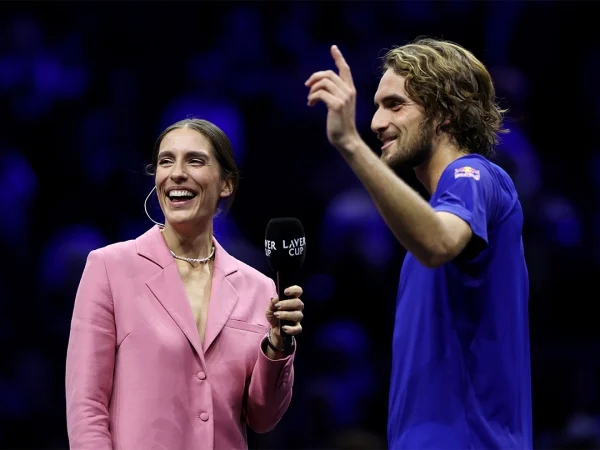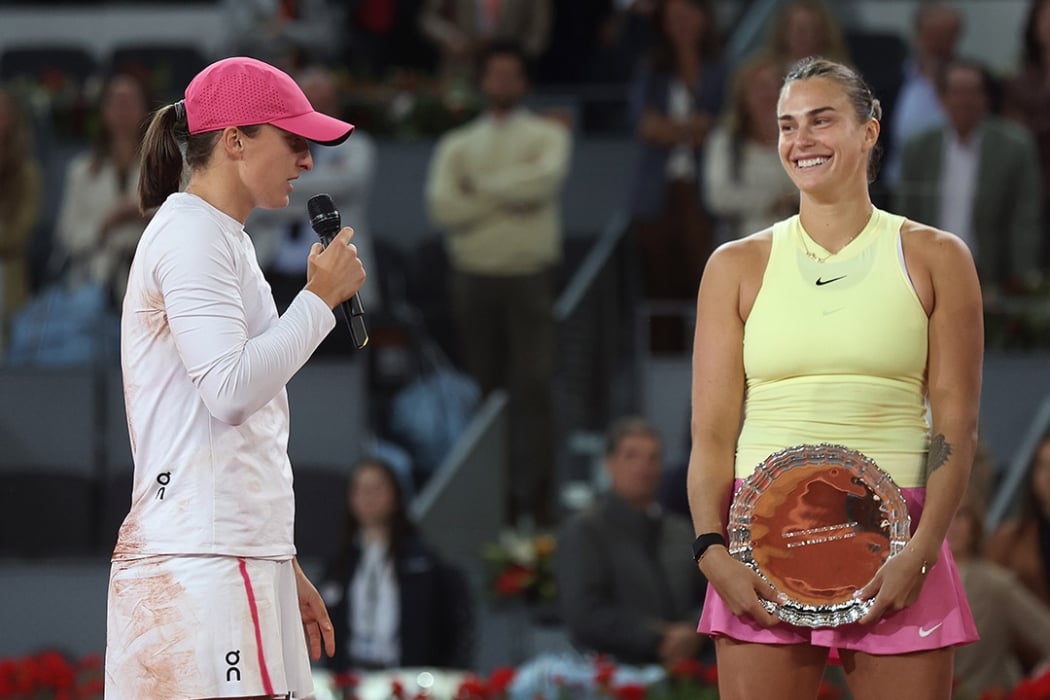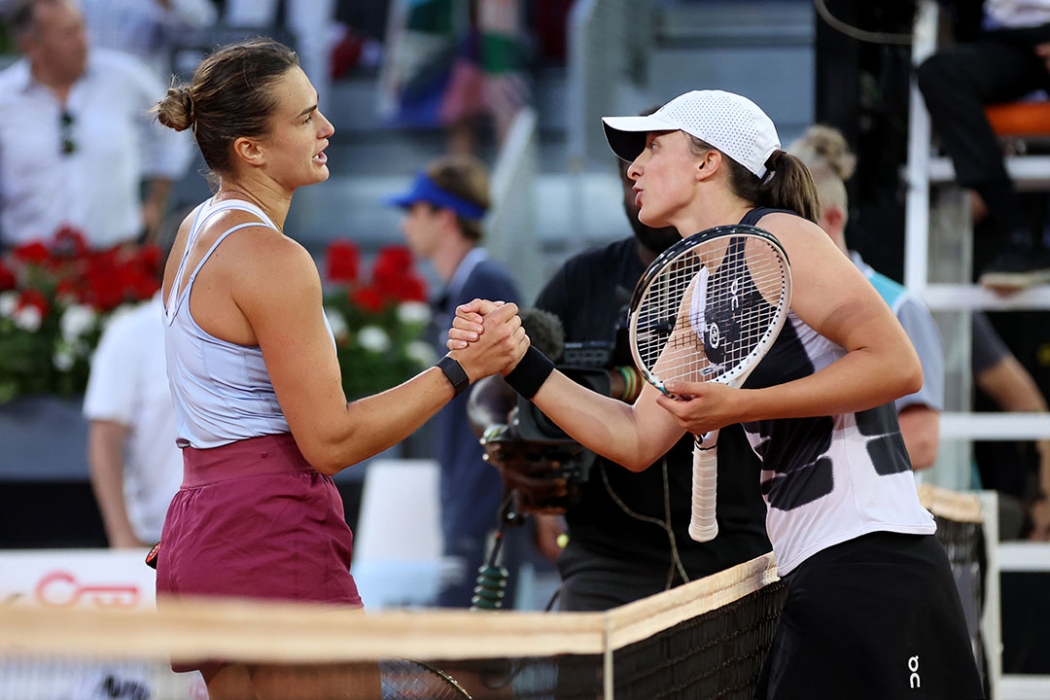Given her professional tennis career spanned more than 15 years while simultaneously being a writer, Andrea Petkovic brings a unique perspective to the sport.
The former world No.9, who retired at the 2022 US Open, has since entered the tennis media space as a podcaster, television commentator and a writer who regularly publishes on Substack.
Having competed against some of the greats of the sport ever since she debuted at tour-level in 2006, Petkovic knew Iga Swiatek and Aryna Sabalenka – the world’s top two women who currently hold three of the four major titles between them – were something special when she first encountered them.
Speaking on The Sit-Down podcast, Petkovic reflected on her career, which overlapped with iconic names such as these.
She emerged at the tail-end of the Kim Clijsters and Justine Henin era, faced other multiple major champions like Venus Williams, Maria Sharapova, Li Na, Victoria Azarenka, Angelique Kerber, Petra Kvitova, Garbine Muguruza and Simona Halep, witnessed the rise of younger stars such as Naomi Osaka and Ash Barty, and ended her career just as Swiatek and Sabalenka were hitting their stride.
Her playing days also coincided with the great Serena Williams, who like Petkovic competed for the last time in New York in 2022.
LISTEN: Andrea Petkovic on The Sit-Down
"It was such a pleasure and honour really, to play alongside these women, and I take a lot from having been able to be in the same locker rooms, on the same courts, as the best women in the world, that have ever done this,” Petkovic said.
"I think I was a writer before I was a tennis player. So what comes with writing is watching, right? I was always a very keen observer of everything around me, and I would watch all these girls and all these women do what they do, and how they achieved it, and how they trained, how they ate.

"That was always something that I gained a lot of strength from and something that I also modelled myself after, after these great women, and that really made me stronger as a personality.
"It helps me in my new job as an analyst and an expert, because I have seen so many generations and I can see patterns now.
“When I [first encountered] Sabalenka when she was 17, and same with Iga Swiatek, I already knew and told my coaches: 'Oh, these two will win Slams, will win major titles for sure.'
“You can just feel that there is something else within them."
Notably, Swiatek and Sabalenka clashed in a pulsating US Open semifinal in 2022, just over a week after Petkovic played her final match at the same venue. Swiatek went on to win that tournament, and Sabalenka won the next major at Australian Open 2023.
WOODBRIDGE: Sabalenka poised for more Slam success
As a teenager, Petkovic made her tour-level debut in Hasselt in 2006 and won her first tour-level match at Roland Garros in 2007. By 2009, she was entrenched in the top 100 and competing regularly on the WTA Tour.
But it was her breakout run at Australian Open 2011 that boosted her career to new heights.
She upset Sharapova in a fourth-round night match to reach her first Grand Slam quarterfinal, a stage she would also reach later in 2011 at Roland Garros and the US Open – results which helped her crack the top 10 that same season.
“I love being at the Australian Open because all those images come back,” said Petkovic, who also revealed she loved the sporting knowledge and energy of the Australian crowds.
“I think what I remember most [is] it really did change the trajectory of my career – and I'm not exaggerating when I say that. The reason why I say that is, there are players who have confidence the moment they come on court, like Serena, like Maria Sharapova, Carlos Alcaraz, Novak Djokovic. Even as 12-year-olds, they always knew they belong at the top of the game.
“I wasn't like that. I always need to gain the confidence before I could go on to do great things. And Australian Open was a big key moment for me, because it added another block of confidence for me, knowing that I can beat the likes of Maria Sharapova on a big stage in front of a packed Rod Laver Arena in a night-session setting, and reach the quarterfinals of a major tournament for the first time.
“I think it set me up for what I've reached after that, and accomplished after that, being a top-10 player and reaching multiple [major] quarterfinals.
“That was the first stepping stone, and I think that's why I'll always remember it very keenly.”

